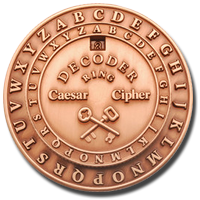Secret Messages
A few years ago, a retired literary agent and long-time friend of mine made a rather interesting comment about my naval warfare books. He remarked that I was rapidly becoming the first military techno-thriller author in history to build a successful career out of writing anti-war novels. Before I could respond, he went on to compliment me for weaving the anti-war message into my stories so subtly that no one had ever caught me in the act.
I honestly didn’t know how to respond. I’ll admit that I’ve explored certain themes in my writing. For instance, Sea of Shadows explores what might happen if an unprepared president takes military advice from his political cronies, while ignoring the counsel of the people who are actually qualified to guide him. The book also examines the dangers of becoming a slave to established doctrine in situations where it clearly doesn’t apply.
In my opinion, both of those concepts are worthy of discussion in real life, and they happen to double nicely as complicating factors in the story. But I wouldn’t consider them messages. In fact, I don’t consider them messages. I’ve never intentionally set out to imbed messages in my stories. I write thriller novels. My job is to entertain readers. Period. Not to educate them. Not to influence their opinions. Not even to broaden their horizons. If I can keep readers turning the pages and smiling, I’ve accomplished my entire mission.
So I was surprised (and frankly a bit upset) when this wise and trusted literary guru congratulated me for the clever subversiveness of my anti-war message. I asked him to explain. He did…
“You’re writing combat action thrillers,” he said, “but your stories are never about crushing the enemy. In your books, the U.S. military units fight until their objectives are satisfied, and then stop. The Soldiers and Sailors don’t wave the banners of victory and proclaim American supremacy. They do their jobs as quickly as possible, and then they go home. No fanfare. No parades. No grandstanding about the glory of war, or moralizing about how the bad guys had it coming.”
Listening to my friend speak, I started to get a glimmer of where he was coming from. Most of what he was saying was true, but I don’t think any of that qualifies as a secret message. It’s more like my basic view of military action, formed over many years of life in uniform.
War sucks. So does open heart surgery, and so does chemotherapy. Military intervention is never a good answer. But sometimes—for all of the attendant horror and suffering—it ends up being the best of all the bad options available. When that happens, like cardiac surgery or chemo, your best course of action is to get it over with as skillfully and quickly as you possibly can.




